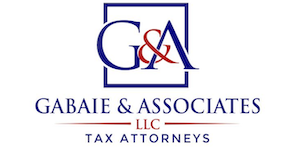
When it comes to tax enforcement, rumors and half-truths spread fast. Let’s go over five of the most persistent myths around IRS liens and levies—and what you should really know as a taxpayer.
Myth 1: “The IRS can’t touch my retirement or pension accounts.”
Truth: Under U.S. tax law, the IRS can levy retirement accounts (IRAs, 401(k)s, pensions), since levies may reach “all property and rights to property.” However, IRS policy generally requires extra safeguards and tends to avoid levying retirement funds unless your conduct is considered flagrant.
Myth 2: “If I ignore IRS notices, eventually the problem will go away.”
Truth: Ignoring IRS notices removes opportunities to respond, contest, or negotiate. It can also quickly escalate from liens to levies. Once enforcement actions begin, more severe consequences like wage garnishment or asset seizure may follow, limiting your legal and financial options.
Myth 3: “If the IRS levies, there’s no way to get it back.”
Truth: The IRS can release or reverse a levy, especially if the taxpayer successfully petitions for relief or appeals via a Collection Due Process (CDP) hearing. Timing is essential, however. Acting promptly gives you the best chance to stop or unwind the seizure before it does permanent damage.
Why It Matters…and What You Should Do
Myths like these can lull you into a false sense of security. You could miss opportunities or suffer irreversible financial losses if misconceptions guide your tax decisions.
Here are actionable tips to help you stay vigilant:
- Review every IRS notice immediately; don’t let them pile up.
- Gather all your financial and asset information so you know what the IRS could target.
- Consult a tax attorney as soon as possible. Bad timing can be just as damaging as misinformation.
- Don’t handle it alone. A professional can help you negotiate smarter deals and avoid procedural missteps.
If you’re facing IRS liens or levies, or if you’re worried about tax debt that’s spiraling out of control, you need to get in front of it immediately. The IRS is patient up to a point, but once they move into aggressive collection mode, your window for favorable resolution shrinks rapidly. Call Gabaie & Associates, LLC today at (410) 358-1500 or send us a consultation request, so we can start preparing a strategy for you.

